The view that Europe’s development aid is less focused on its original goals and requires reforms to address current challenges has been discussed for some time now. Complex bureaucratic procedures, the lack of rapid adaptation to local needs and sometimes excessive orientation to European geopolitical and economic interests limit the effectiveness and impact of aid. Furthermore, while sustainability is a stated priority, long-term reliance on external funding suggests that the programs could do more to build local capacity and stimulate self-sustaining initiatives. In late 2024, before the tectonic shifts in the international aid sector and the massive slashes to aid budgets by the U.S. and some of the EU countries that were announced in the spring of 2025, we approached several international development experts to seek their opinions on how Europe’s development aid model can evolve to meet and prioritize the needs of the world’s poorest countries. Check out their opinions below.
Key Takeaways:
- EU collective Official Development Assistance reached EUR 95.9 billion in 2023.
- Experts consider that the current model of European aid has a greater focus on the amelioration of geopolitical conflicts, rather than its initial goal of poverty reduction.
- To refocus Europe’s development aid on poverty alleviation, it is essential to integrate humanitarian, development, and peacebuilding efforts.
- Green energy projects should foster local access, create sustainable jobs, and build resilience in underserved communities.
- Similarly, migration-related aid must address root causes such as poverty and instability, to benefit both the recipient countries and Europe.
DevelopmentAid: How can Europe’s development aid model evolve to ensure it prioritizes the needs of the world’s poorest countries over its own geopolitical and economic interests?
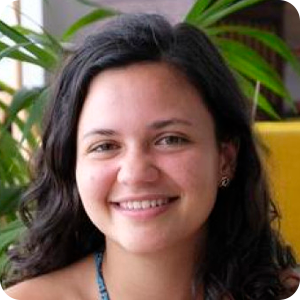
“To prioritize the needs of the world’s poorest countries, Europe’s development aid model must center local and regional sovereignty. This requires empowering recipient nations to design, implement, and oversee aid projects that align with their self-identified needs and long-term development strategies. Aid conditionality tied to European geopolitical interests often undermines this autonomy, creating dependency rather than fostering resilience. Instead, partnerships should emphasize co-creation, transparency, and accountability, ensuring that funds address poverty alleviation directly. A shift toward funding local organizations and grassroots initiatives, rather than imposing externally driven solutions, could amplify the voices of marginalized communities and increase the sustainability of aid projects. Ultimately, Europe must commit to a decolonial approach to aid, reframing relationships with recipient countries as equitable partnerships rather than hierarchical arrangements.”
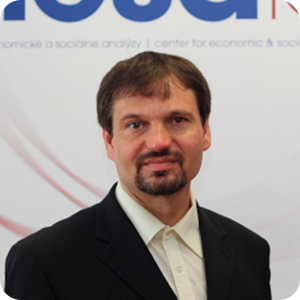
“Motivation by good example is the most effective and natural way by which developed countries can influence their less developed partners. In view of this, Europe’s development aid can help countries in need, as example by providing experience on how their current problems were tackled elsewhere and with what results. EU experts can use their own experience to help local governments with their own ongoing reform intentions whenever they are asked to do so. However, they should never pressurize those governments into changing local legislation to satisfy EU migration policy, green energy, etc. This approach will ensure development aid that is focused on the real needs of the recipient.”

“To refocus Europe’s development aid on poverty alleviation rather than geopolitical interests, adopting a Triple Nexus framework that integrates humanitarian, development, and peacebuilding efforts is essential. This approach fosters needs-based, localized interventions that empower communities to build resilience and address the root causes of poverty, helping aid to remain truly recipient-centered. Flexible funding mechanisms that are aligned with the Triple Nexus would enable adaptive, context-sensitive responses that prioritize poverty reduction without succumbing to external political agendas.”

“While there are concerns that Europe’s development aid program is becoming more self-serving and increasingly less focused on poverty alleviation, my opinion is that most development aid, whether it comes from North America, Asia or elsewhere, is self-serving in the first place. Economic development is a process that seeks to improve the economic well-being of communities in both the developed and developing world through policy initiatives that create conditions that foster economic growth. When Europe extends development aid to the poorest countries, now it looks to me that it does so in the national interests of the countries that comprise Europe. To ensure that the European aid model evolves in a way that benefits the poorest in the developing world, development aid policy makers need to re-examine the relationship between European Governments and their private sector partners in the development aid process. These partners quite naturally focus on the profitability of development aid and inordinately influence the aid narrative. Policies that support transparent evaluation mechanisms and increased participation of the local private sector would provide greater benefits to developing countries and improve the credibility of European development aid.”
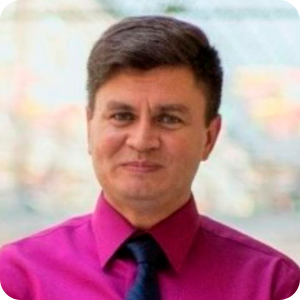
“I live in Moldova and, in my view, any external aid is valuable. Every country has its own sustainable economic development as a first priority; it is natural. In addition, if countries such as Sweden, located far from Moldova, do something useful for us, it is appreciated. If we talk specifically about aid to Moldova, I would focus on systemic measures that are oriented toward decreasing corruption in the country and the creation of digital online systems: population-state, business-state, with zero direct communication between population-state officials and business-state officials.”
DevelopmentAid: Given the shifting focus of EU aid towards areas like migration and green energy, what measures should be implemented to ensure aid effectiveness and poverty alleviation?

“To ensure that aid effectiveness and poverty alleviation remain central, the EU must decouple development aid from border externalization policies. Redirecting funds to foster safe and legal migration pathways, such as humanitarian visas and resettlement schemes, can respect migrants’ rights while addressing the root causes of displacement. Similarly, tackling “greenwashing” requires prioritizing renewable energy initiatives that are inclusive, locally-led, and adapted to the realities of the recipient communities rather than pursuing projects that serve European economic interests. Robust monitoring frameworks, developed collaboratively with civil society and local stakeholders, can ensure transparency and adherence to poverty alleviation goals. By focusing on solidarity and rights-based approaches, the EU can reaffirm its credibility as a global development partner.”

“There are many potential areas where the real development needs of the recipient can align with the donor’s policy goals. The simple fact that the poorest countries or countries in need become more prosperous and safer can help to reduce illegal migration flows from their regions, allowing economies to be greener as well. Intensive communication between donors/experts and benefiting subjects must be maintained throughout the entire duration of the assistance to tailor it to local needs. Each country is unique, with its own culture, environment, and requirements.”
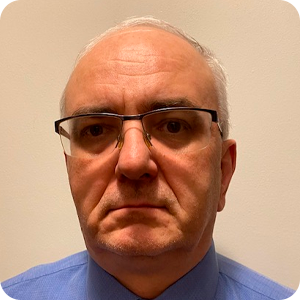
“The area of EU aid towards green energy could shift from budgeting to green budgeting. The main aid objective should be the development and implementation of a concept, measure or instrument that is useful for enhancing capacities and actions toward ‘green public financial management’ (green PFM). Therefore, EU aid should further support the integration of the existing PFM agenda paying attention to the aspects of green energy in the budget preparation process. In this context, green PFM can play the role of a key enabler for the implementation of an integrated government strategy to combat climate change. Efforts to identify scalable measures of aid effectiveness depend mainly on the capacity to introduce the critical stages of the PFM cycle such as green strategic planning and a green responsive macro-fiscal framework, green budgeting, green procurement procedures, and public investments. The effectiveness is then ensured by, or conditional upon, the integration of climate and environmental aspects into public finances. For example, the shift to “Green-responsive program budgeting” could provide an opportunity to improve the monitoring of environmental outputs and outcomes.”
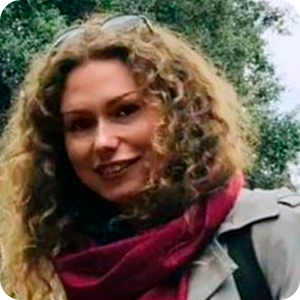
“Overcoming the dilemma between the focus on European interests and the support of the poorest countries in need, Europe’s development aid can build a bridge between the two realms. Cooperation between the EU and the world’s poorest countries could lead to a holistic approach with a long-term impact on both. The exchange of know-how and support for the poorest countries to achieve sustainable growth, based on their needs, with a joint evaluation mechanism, and in line with Europe’s interests, can be the balancing act, ensuring that both Europe’s development aid goal and European geopolitical and economic interests can be simultaneously reached. Utilizing the great human capital that Europe gains through the movement of people will be a benefit in this process. Increasing the skills and knowledge of immigrants coming from the poorest countries, as well as the residents of these countries, can empower them to be both mentors for the transition in accordance with EU priorities, and valuable actors in the growth of their countries.”
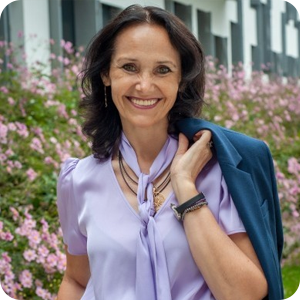
“Europe’s development aid must reaffirm its commitment to address global poverty while integrating responses to modern challenges. Prioritizing needs-based allocation ensures aid is directed to those in need within and outside the region, upholding Europe’s values and enhancing its credibility as a development partner. The focus on migration and green energy can align with poverty alleviation if designed inclusively. Green energy projects should foster local access, create sustainable jobs, and build resilience in underserved communities. Similarly, migration-related aid must address the root causes such as poverty and instability, benefiting both the recipient countries and Europe. To maintain effectiveness, transparent accountability frameworks are essential for measuring progress against poverty reduction and towards sustainable development goals. Strengthening partnerships with local stakeholders ensures aid is equitable and responsive to real needs. By balancing contemporary priorities with its core mission, Europe can demonstrate leadership in creating shared global prosperity. Aligning strategic objectives with moral responsibilities will reinforce Europe’s legacy as a trusted partner in advancing human dignity and sustainable development. This evolution will ensure development aid remains impactful and credible while addressing the world’s most pressing needs.”

“As Europe increasingly directs aid towards sectors like migration and green energy, measures to ensure that poverty alleviation remains central are critical. Robust monitoring and evaluation frameworks should be implemented to track and measure the impacts on poverty, ensuring that initiatives genuinely benefit the poorest regions, and also include feedback mechanisms. By incorporating participatory planning and engaging local stakeholders, Europe can design green energy and migration projects that directly support underserved populations, creating sustainable employment opportunities and improving local infrastructure. Finally, ensuring transparency and accountability in aid allocation, coupled with a commitment to policy coherence, will help to maintain Europe’s credibility and align every project with poverty reduction goals. With these adjustments, Europe’s development aid can sustainably reduce poverty, promote peace, and rebuild trust in its commitment to the world’s most vulnerable.”
Currently, there are numerous job openings and 25,000+ tenders and grants for individuals in the international development sector in Europe available on the DevelopmentAid job board. To access all of these, read the requirements, view salary trends, and apply, candidates will need an Individual Professional Membership package. As well as all these advantages, their profiles also gain much more exposure, and they can even approach organizations and funding agencies directly via the available Messages feature.

